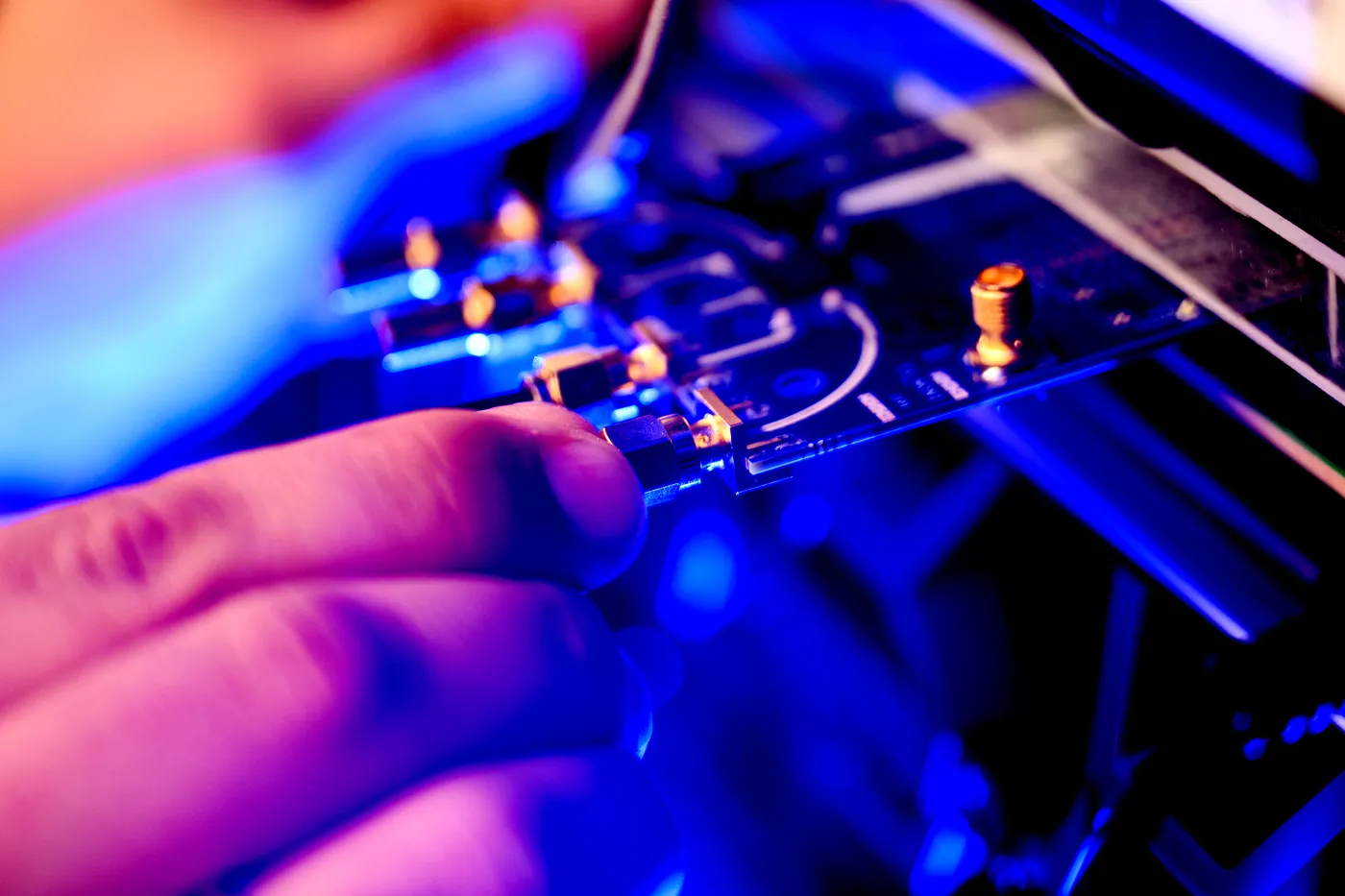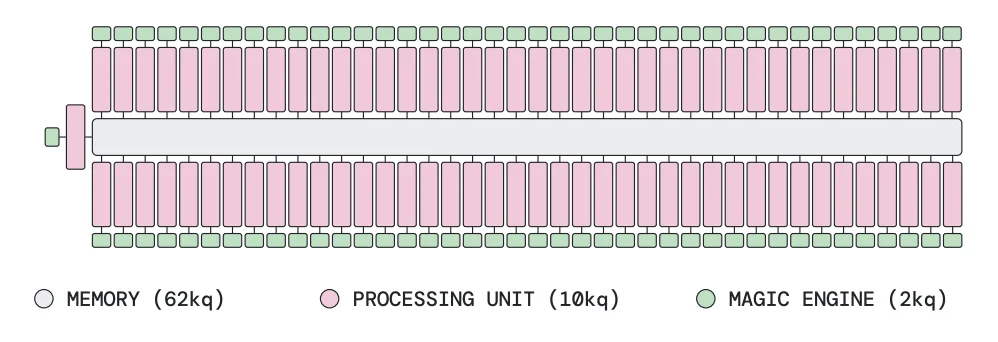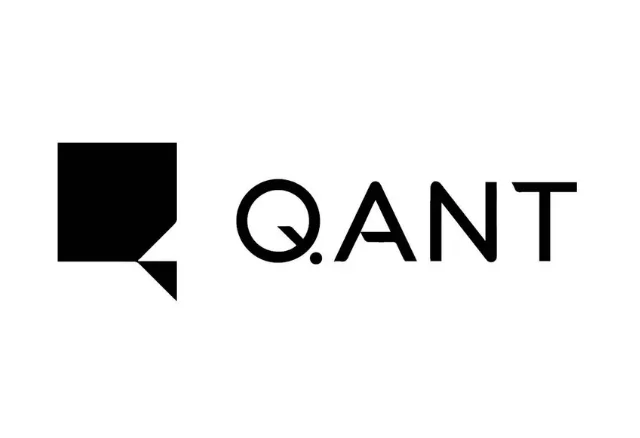Insider Brief
- Massachusetts has invested $5 million in a quantum computing project in Holyoke, partnering with Boston-based company QuEra, to position the state as a leader in this transformative technology, according to Northeastern Global News.
- Devesh Tiwari, a quantum computing expert at Northeastern University, highlights quantum computing’s potential to solve complex problems in cryptography, supply chain optimization, and drug discovery, which classical computers cannot handle efficiently.
- Tiwari’s Goodwill Computing Lab is advancing practical quantum applications, including pioneering work in image generation and quantum machine learning, while addressing challenges like error correction to make quantum systems more reliable.
- Image: Matthew Modoono/Northeastern University
For a technology that Devesh Tiwari, associate vice provost for research computing at Northeastern University, was once warned “is not going to go anywhere,” quantum computing is moving from theory to reality, and Massachusetts has just invested $5 million in a project that could move the state into a quantum computing leadership position.
According to a story in Northeastern University’s Northeaster Global News, the investment, directed toward a quantum computing initiative in Holyoke and partnering with Boston-based company QuEra, reflects the growing recognition of quantum computing’s potential to transform industries from medicine to logistics.
Tiwari, who also serves as the director of the Goodwill Computing Lab, describes quantum computing as “the stuff made of dreams.” Once dismissed as science fiction, quantum computing is now attracting investments from governments and major companies worldwide.

The industry’s push toward quantum technology, Tiwari says, is driven by its ability to solve problems that even the most advanced classical supercomputers cannot handle efficiently. For example, in fields like cryptography and supply chain optimization, problems that would take classical supercomputers a million years to solve could potentially be cracked in minutes by quantum computers.
Quantum computers operate differently from classical computers, which use bits — units of information that can represent either a 0 or a 1. Quantum computers, by contrast, use quantum bits, or qubits, which can exist in multiple probabilistic states — a property called superposition. A robust quantum computer could theoretically process complex calculations at speeds vastly superior to classical systems.
As reported by Northeastern Global News, Massachusetts Governor Maura Healey’s administration’s investment in quantum computing highlights the technology’s potential to accelerate scientific and industrial advances. It’s really just the beginning, Tiwari told the university news service.
“I wouldn’t say Massachusetts will be the only one, and I won’t say we will be the last one to do it,” Tiwari said, as reported by Northeaster Global News. “You will see more such investment throughout the U.S. and throughout the world. … This is the time to do quantum computing.”
Tiwari’s lab has already achieved pioneering milestones, according to the article. For instance, his team was one of the first to use IBM quantum computers to produce high-quality images using quantum generative adversarial networks, a method that creates new data samples that resemble existing ones. This work shows that quantum computing is not just theoretical but can yield tangible results in areas like image generation, a technique with broad applications in artificial intelligence and data science.
According to the article, Tiwari’s former Ph.D. student, Tirthak Patel, who is now a professor at Rice University, helped develop technology that aligns with what QuEra uses in the Massachusetts-backed project. Patel’s work in developing innovative quantum compilers for neutral atom technology has been foundational, bridging theoretical research with practical applications.
The potential of quantum computing also extends to medicine, particularly in drug discovery. As Tiwari told Northeastern Global News: “Figuring out what is the best drug for one particular person and the computer simulations of how to design new drugs has the potential to be sped up drastically by quantum computers. What it really means is we will really make a lot of progress towards better drug discovery or better drug development.”
Quantum computers can simulate molecular interactions at an incredibly detailed level, helping researchers understand how potential drugs interact with the human body, which could lead to faster and more effective drug development.
However, significant technical challenges remain. One of the biggest obstacles is quantum computing’s tendency toward errors, which can distort calculations. Tiwari and his team are exploring ways to address this problem, seeking to make quantum computers more reliable. Their work also involves developing quantum machine learning models, reaching 90 percent accuracy in some cases. While this accuracy is slightly lower than what classical supercomputers achieve, Tiwari points out that his team often achieves these results using far fewer machine learning parameters and on smaller quantum systems.
The Goodwill Computing Lab is also focused on expanding quantum computing’s applications in fields like natural language processing, a branch of artificial intelligence that allows computers to understand human language. Tiwari’s team, led by researchers Daniel Silver and Aditya Ranjan, is working to build machine learning capabilities for quantum computers that could eventually perform tasks now handled by classical systems, but potentially faster and more efficiently.
According to Northeastern Global News, the lab’s work represents a mix of science and imagination. Tiwari captures this sense of exploration, telling the news service, “It’s scientifically challenging and fun, both at the same time. We are putting very high order goals in front of us and seeing if we can beat them. … You somehow have to think about the future, invent it and then people believe it.”















